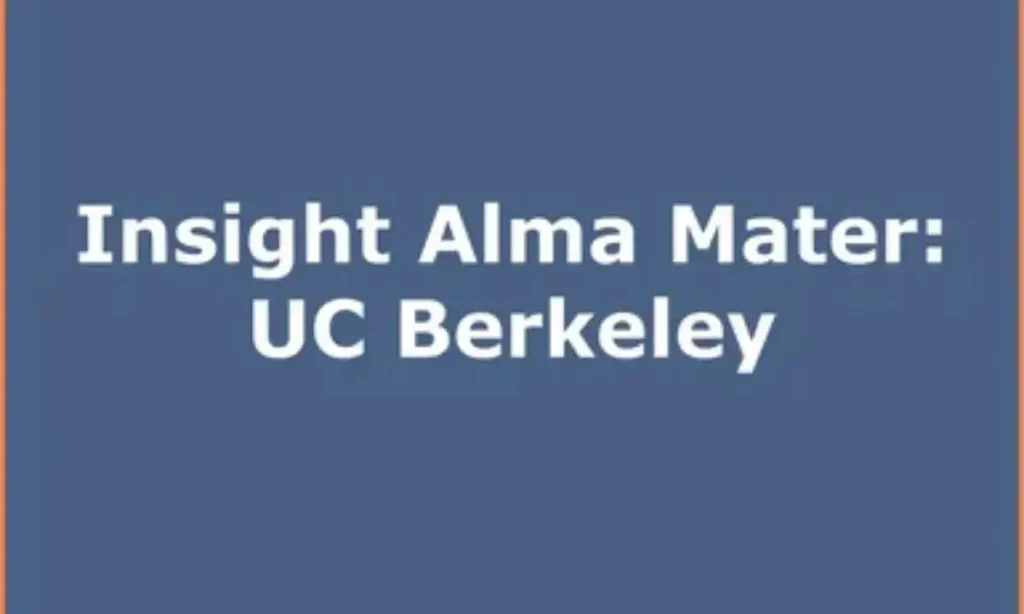When a recall makes headlines, it often sparks confusion and concern — especially when it involves something as basic as drinking water. In September 2024, Berkeley Club Beverages, the maker behind Berkeley Springs Water, voluntarily recalled several batches of its bottled water products across parts of the U.S. Within weeks, the FDA (U.S. Food and Drug Administration) officially classified the case as a Class III recall — the lowest level of public health concern. By November 13, 2024, the Berkeley Club Beverages recall was terminated, signaling that corrective actions were complete and the affected products were no longer on the market.
This article breaks down what really happened, why it matters for consumers, and what “recall terminated” actually means for public safety and trust.
Table of Contents
Quick Facts at a Glance
| Detail | Information |
|---|---|
| Company | Berkeley Club Beverages |
| Products | Berkeley Springs Water Purified & Distilled (1-gallon and 5-gallon jugs) |
| Recall Class | Class III (low health risk) |
| Initiated | September 12, 2024 |
| Terminated | November 13, 2024 |
| Cause | Detection of coliform bacteria in internal testing |
| States Affected | West Virginia, Maryland, Virginia |
| Illnesses Reported | None |
| Regulator | U.S. Food and Drug Administration (FDA) |
| Distribution Type | Retail and delivery to local businesses and homes |
What Triggered the Recall
The Berkeley Club Beverages recall began when routine internal quality control tests detected coliform bacteria in several production batches. Coliforms are a group of bacteria commonly found in the environment — including soil, vegetation, and untreated water — and are often used as indicators of potential contamination.
Although not all coliform bacteria are harmful, their presence can signal that pathogenic microorganisms like E. coli might also be present. Out of caution, Berkeley Club voluntarily pulled the affected lots to prevent any potential health risk, even though there were no confirmed illnesses linked to the products.
The recall was a proactive safety measure, not a crisis response — a critical distinction that underscores responsible industry behavior.
Products Affected & Key Identifiers
The recall included both purified and distilled water products packaged in 1-gallon and 5-gallon plastic containers. These were distributed primarily under the Berkeley Springs Water brand.
Affected Batch Codes:
- 090326
- 090426
- 090526
- 090626
Each of these codes can be found on the bottle neck or near the cap label. Consumers were advised to check these identifiers carefully to determine if their products were part of the recall.
Important Note: The contamination was limited to a small production window and did not affect later batches or other Berkeley Club Beverages products.
Timeline: From Recall Initiated to Recall Terminated
Understanding the timeline helps clarify how recalls are managed and resolved.
| Date | Event |
|---|---|
| Early September 2024 | Internal testing identifies potential coliform contamination. |
| September 12, 2024 | Berkeley Club Beverages voluntarily initiates recall and notifies the FDA. |
| Mid-September 2024 | Retailers begin removing affected products from shelves; company initiates corrective measures. |
| October 2024 | FDA inspection and compliance verification conducted. |
| November 13, 2024 | FDA officially lists the recall as “Terminated.” |
The roughly two-month process demonstrates how long it takes to identify, investigate, correct, and close out a recall in compliance with federal guidelines.
What Does “Recall Terminated” Mean?
A terminated recall doesn’t mean the product was never an issue — it means the FDA has verified that the company has:
- Successfully removed all affected products from circulation.
- Implemented corrective actions to prevent recurrence.
- Met all requirements for closure under 21 CFR 7.55 (the section of the Code of Federal Regulations governing recall termination).
Essentially, “recall terminated” signals regulatory closure — the issue is resolved, not ignored.
Was Berkeley Club Water Unsafe?
According to FDA documentation, this was classified as a Class III recall, meaning the probability of serious health effects was very low. Class III recalls typically involve products that violate labeling or quality standards but are unlikely to cause adverse health consequences.
In this case:
- Coliform bacteria were detected, but no pathogenic E. coli or harmful microorganisms were confirmed.
- The contamination levels were low and detected before any illnesses occurred.
- No consumer harm was reported throughout the process.
So, while the product technically did not meet water safety standards during testing, it was not considered dangerous by regulatory definition.
Was It Juice, Soda, or Just Water?
Despite the company name “Berkeley Club Beverages,” the recalled products were still bottled water — specifically distilled and purified drinking water. These are non-carbonated, non-flavored water products, typically used for household consumption, baby formula preparation, or medical devices like humidifiers.
No juice, soda, or flavored drinks were affected. This distinction is important since carbonated or acidic beverages naturally inhibit bacterial growth, while neutral pH water can allow microorganisms to survive if sanitation isn’t perfect.
Who Initiated the Recall, and How Long Did It Last?
This was a voluntary recall — initiated by Berkeley Club Beverages itself, not forced by regulators. The company acted swiftly after detecting the issue in its Berkeley Springs, West Virginia facility.
The recall lasted approximately 62 days, from September 12 to November 13, 2024. During that time, all affected batches were removed from stores and replaced with verified-safe production runs.
Where Affected Products Were Sold (Distribution Region)
Distribution data from the FDA and company statements confirm that affected products were sold mainly in:
- West Virginia
- Maryland
- Virginia
The recall affected local grocery chains, delivery routes, and club retail partners in these areas. No nationwide shipments were involved.
Because the contamination was isolated to a single production line, only a limited distribution zone was impacted.
How Berkeley Club Fixed the Issue
The company took several actions that satisfied FDA requirements:
- Plant Sanitation Review – Full cleaning and disinfection of the water bottling equipment and storage tanks.
- Source Verification – Re-testing of incoming water from the Berkeley Springs source.
- Process Revalidation – Review of filtration and UV sterilization systems.
- Employee Retraining – Reinforcement of good manufacturing practices (GMPs).
- Third-Party Testing – Independent lab verification to confirm compliance before restarting production.
These corrective measures are standard in the food and beverage industry, ensuring long-term consumer safety.
The Role of Regulators: FDA & Others
The U.S. Food and Drug Administration (FDA) oversaw the recall, ensuring all corrective actions were verified. In addition, state-level health departments in West Virginia and Maryland coordinated inspections and public updates.
The FDA’s Recall Enterprise System tracked progress, verified sanitation, and ultimately classified the recall as terminated after confirming compliance.
Public Health Impact & Verified Harm
Importantly, no illnesses or adverse reactions were ever reported from Berkeley Club’s recalled products. According to FDA records and independent media outlets like Newsweek and Top Class Actions, the recall was preventative, not reactive.
This aligns with best practices in the beverage industry — detecting and addressing minor issues before they become public health risks.
Are Similar Products Affected?
No other Berkeley Club Beverages or Berkeley Springs Water products were part of this recall. Testing across other product lines — including carbonated water and flavored variants — found no contamination.
The issue was localized to one production batch and was resolved before additional batches were distributed.
Does “Recall Terminated” Mean It’s Safe to Drink Again?
Yes — products now on the market are safe to drink. The recall termination signifies that the FDA confirmed Berkeley Club’s corrective measures were effective and that the affected products are no longer in circulation.
If you purchase Berkeley Springs Water today, it comes from new production lots that have passed enhanced quality checks.
What Consumers Should Do
If you still have an old bottle of Berkeley Springs Water with the listed batch codes, here’s what to do:
- Check the Batch Code — Look for “090326” to “090626.”
- Do Not Drink It — Discard or return it for a refund.
- Contact Berkeley Club — The company offered a consumer hotline and refund program during the recall.
- Stay Updated — Follow official recall databases for future updates.
You can verify recalls anytime at the FDA Recall Database.
How to Stay Informed & Use Recall Tracking Tools
To keep your household informed about food and beverage recalls, bookmark or subscribe to these tools:
- FoodSafety.gov – Consolidates recalls from multiple agencies.
- FDA Recall Database – Updated daily.
- State Health Alerts – Subscribe to local recall notifications.
- Mobile Recall Apps – Some apps send instant alerts when new recalls are posted.
Food Safety Concepts & Processes Involved
This recall highlights several core food safety principles:
- Preventive Controls (HACCP/FSMA): Companies must identify and control risks before they occur.
- Microbial Testing: Routine lab tests for coliforms, E. coli, and Clostridium botulinum are required.
- Traceability: Every batch must be trackable from source to shelf.
- Voluntary Recall Process: Firms are encouraged to self-report and act quickly to protect consumers.
These processes help ensure the U.S. food and beverage supply remains among the safest in the world.
What Measures Help Prevent Such Recalls
Food and beverage manufacturers can minimize recalls through strict safety controls, including:
- Automated sanitation systems that reduce contamination risk.
- UV and ozone sterilization in water bottling plants.
- Routine microbial screening for indicator organisms.
- Supplier audits to confirm material integrity.
- Employee training in hygiene and handling.
Berkeley Club’s proactive actions set a positive example for other mid-sized beverage producers.
FAQ: Common Questions Answered
Q: What was the main cause of the recall?
A: The detection of coliform bacteria in several bottled water batches prompted the recall.
Q: What is “Class III recall”?
A: A Class III recall is a low-risk event where products violate regulations but are unlikely to cause harm.
Q: Could this become a botulism issue?
A: No. Clostridium botulinum cannot survive or multiply in oxygen-rich bottled water, making botulism impossible in this context.
Q: Can I drink other Berkeley Club products?
A: Yes. Other products and newer water batches are fully compliant and safe.
Q: How do I know if I have an affected bottle?
A: Check batch codes “090326–090626” printed near the cap or label.
Q: Is the product safe now?
A: Yes. After extensive testing and FDA verification, all current Berkeley Springs Water products meet safety standards.
Why This Matters: Implications & Lessons
The Berkeley Club Beverages recall illustrates how quality assurance systems and regulatory transparency protect public health. Even though the contamination posed minimal risk, the company’s swift voluntary response reinforced consumer trust.
For regulators, it’s a case study in effective collaboration — a company identified a problem early, cooperated with oversight, and resolved the issue within two months.
For consumers, it’s a reminder to:
- Check recall lists regularly.
- Understand recall classifications.
- Avoid panic when recalls are handled properly.
Final Thoughts
The termination of the Berkeley Club Beverages recall in November 2024 marks a successful conclusion to a responsible safety process. While “recall” may sound alarming, this case shows how modern food safety systems work exactly as intended — detecting risks early, preventing harm, and restoring safe products to the market.
Berkeley Club Beverages acted transparently, regulators verified the fix, and consumers can now drink Berkeley Springs Water with confidence once again.



